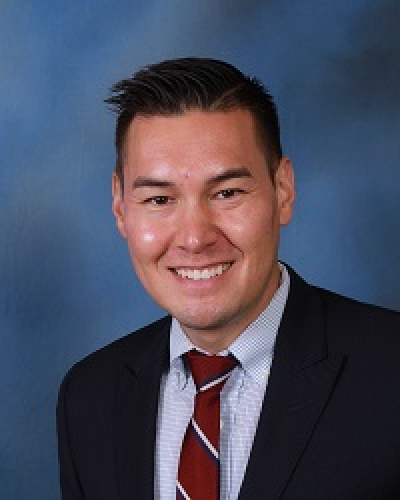Advice Given and Lessons Learned After My First Year as an Attending in the Cardiac ICU
One year ago, I started my journey as an attending pediatric cardiac intensivist. People often say that you learn more in your first year as an attending than in your last year of fellowship, and I believe that is 100% true. As I began this journey, I asked for advice from my previous mentors and compiled them into an article I published in the inaugural edition of the Pediatric Cardiac Intensive Care Society newsletter. Now, after surviving my first year and learning lots of lessons, I’m taking that article and adding some of my own observations/spin to the advice that I received. (My new editorial comments/additions/insights are in italics or bold italics).
“Wellness and self-care are critical. This is not an easy profession; it does not allow you to rest on your laurels when you’re actively caring for some of the sickest kids in the world and it’s not without its toll. Burning bright at 110% all the time will consume anyone, so practice self-compassion. ‘You are neither weak nor powerful. Bad things will happen. Try to blame yourself less.’ And take some time off for things that are really important to you. When you find yourself perseverating about a clinical situation or patient interaction that you wish could have gone differently, give yourself a time-out. Don’t beat yourself up endlessly. Take a minute to say ‘I cannot change the past; next time, I’ll react this way….’ and then sit down and force yourself to think about something else for a while: listen to music, sing a song, watch TV, read something for fun.
In our field, we are both blessed and cursed to have lots of opinions about the work we do. Seek advice often, but when you’re making decisions, do what feels right for the patient. Definitely go with your gut; it’s almost never wrong. By its nature, we are a team-based subspecialty, so always be respectful of your colleagues. We depend on each other and need to be kind and caring to one another.
‘Be flexible. Learn your new system before trying to make changes in it. Avoid saying “At my institution, we did it this way.” Although your past experiences are vital in helping you develop your style and way to do things, it is just as important to learn what works in your new system and then make changes that will be effective. Find several mentors. One person doesn’t have to fill all your mentoring needs. Ask questions frequently. I think I sat down with a senior colleague on an almost daily basis to rehash my decisions when I started.’ -Catherine Krawczeski, MD. I definitely am still working on this. I ask for mentorship, but I really need to be more proactive in my mentor/mentee relationships.
Your presence on the unit as a trainee, no matter how experienced, is different when you become faculty. ‘Although you won’t always feel like it, you are the leader of the unit. As such, your reactions… are taken to heart more so than when you were a trainee… Share compliments liberally (but be genuine) and deliver critiques gently and with compassion. Teach as much as you can — everyone wants to learn and often those who are struggling crave it the most.’ Don’t take for granted the knowledge that you have. Something that may seem second nature and completely basic to you might actually be a huge, mind-blowing revelation to someone else – we all learned what we know from someone else.
Pay close attention to your patients and give them what they need. Some patients will do well if you let them heal without tinkering, and some will not, despite everything that you do to help. However, there is a small subset of patients who really need your utmost attention, thoughtful consideration, and active, intensive doctoring; your job is to identify this group and do everything in your power to give them the best outcome possible. Again, go with your gut. When something seems like it might need a closer look, then it probably DEFINITELY needs a closer look.
‘Under the best circumstances, it takes at least two years for any new cardiac intensivist to begin to feel competent with clinical decision-making on most of the patients admitted to the CICU. Thus, it’s not realistic to expect you will be on top of a unit full of active cardiac patients soon after completing fellowship. And even after many years of experience in cardiac intensive care, it’s important to recognize that you are not truly in control of the clinical path of all of your patients. It’s simply not a place to feel comfortable and relax your vigilance.’ -Stephen Roth, MD, MPH. Preach!!!
Finally, time is short, do not waste a minute, always show up, be visible, get involved and take chances. From a young faculty administrative perspective, don’t be afraid to say ‘no’ when asked to do things that will extend you beyond your limits as far as time, energy, or passion, but don’t be afraid to say ‘yes’ to things that you think will be difficult just because you’re afraid of failing – these are opportunities for growth. Growth is hard, but worth it.
And when things are going south, take it one step at a time. Step 1: Keep calm and check the pulse and look at the ETCO2.”

David K. Werho, MD is an Assistant Clinical Professor at the University of California San Diego and a Pediatric Cardiac Intensivist at Rady Children’s Hospital – San Diego. His research focuses on pediatric cardiac ICU outcomes as well as interventions and curriculum development in medical education. He tweets @DWerho and contributes to the Pediatric Cardiac Intensive Care Society Newsletter as editor and contributor.